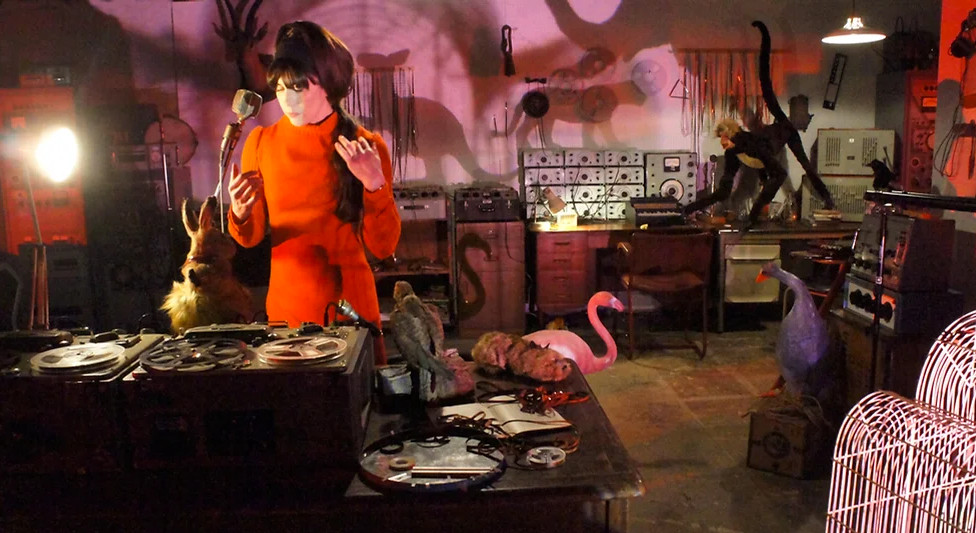Delia Derbyshire: The Myths and the Legendary Tapes
★★★★ out of 5
Played at Cinematheque from Jan. 13 to 18
From director, writer and actor Caroline Catz comes Delia Derbyshire: The Myths and The Legendary Tapes, a docu-dramatization that explores the life and legend of the titular figure, an accomplished English electronic-music composer and audio engineer.
The late, great Derbyshire is most renowned for electronically arranging the theme to British teatime darling Doctor Who, for which she didn’t receive credit until 12 years after her death. Her pioneering work in the BBC’s Radiophonic Workshop, along with a cache of her work found in a Northampton attic following her death, has seemingly sparked an interest in the life of a tortured soul. She is perfectly suited to the biopic treatment.
The film follows Derbyshire’s life, from her joining the BBC’s ragtag team of audiophiles to her eventual departure and fade into obscurity, along with the pitfalls of addiction, being generally misunderstood and an attitude best described as cocksure, at a time when you really needed the former to be the latter. Interspersed between dramatizations are short interviews with some of Derbyshire’s surviving colleagues and acquaintances.
Almost immediately, the film establishes a desolate, ethereal mode befitting of the arcane, cosmic sounds Derbyshire and her colleagues conjure. It should go without saying that special attention is given to the sound design. It’s almost a shame theatres don’t come equipped with headphones for scores like this.
Much of the soundtrack, helmed by aural auteur and performance artist Cosey Fanni Tutti, is remixed and sampled from the 267 tapes retrieved post-mortem. The line between harmony and cacophony is blurred as the bleeps and bloops of 60 years ago are transmuted into a haunting auricular tapestry.
The Myths forgoes biopic clichés, most notably with genuine inventiveness and artistic license. The mood of the film evolves, as the earnest optimism of the space age gives way to a more emotionally murky tone as the assassination of President Kennedy puts a damper on the Swingin’ Sixties, coincidentally the day before the premiere of Doctor Who.
In the same way, Derbyshire’s passion wanes over the course of the ’60s, as she is continually met with bureaucratic red tape and general confusion as to what she does. She resorts to working at night to retain a sense of peace and order.
Arty, but not artsy, abstract interludes provide colour and showcase Catz’s effortless command in front of and behind the camera. Initially off-put by the distinctly British camerawork that induces acute awareness of the air separating actors (see: Coronation Street), I found that the naturalistic staging and delivery of dialogue lent the movie a sort of authenticity and thematic congruity as the principal characters toil away in a dimly lit studio under nigh-anonymity.
The film falters only momentarily. A poorly developed love triangle without resolution lends half-hearted romance to a tale that just doesn’t need it. A tenuous spiritual link with Brian Jones of The Rolling Stones is insisted upon, and the contemporary interview footage sometimes breaks the momentum of the fiercely engaging dramatics. Ultimately, these are minor gripes.
Every Oscar season, biopics are pumped out to minimal fanfare in the hopes of scrounging a nomination or two. Some are good, and some are bad. Some of them are Elvis. But The Myths is wholly its own, simultaneously engaging and educational. Lend both ears and let it take you away.
Published in Volume 77, Number 15 of The Uniter (January 19, 2023)







